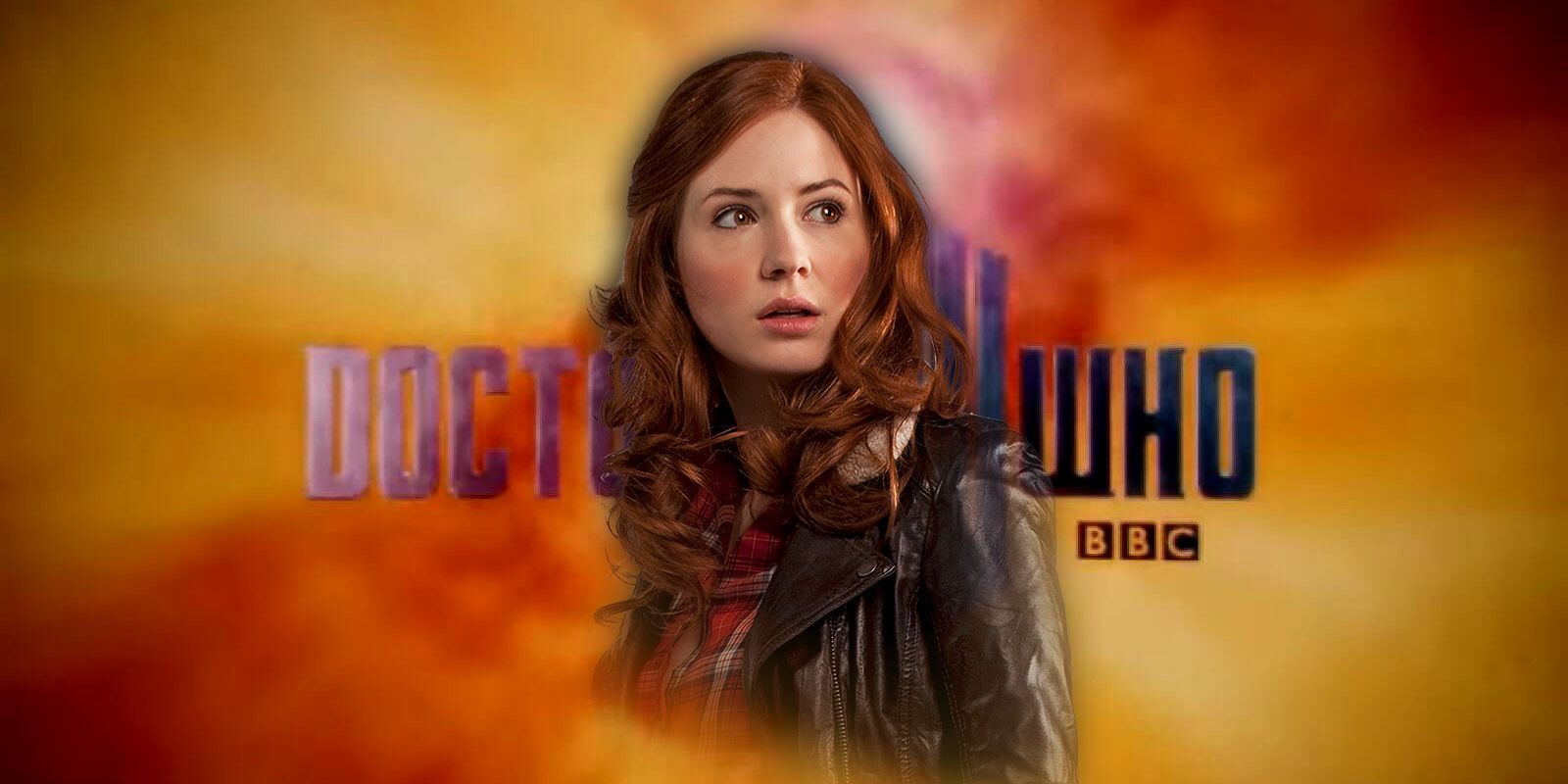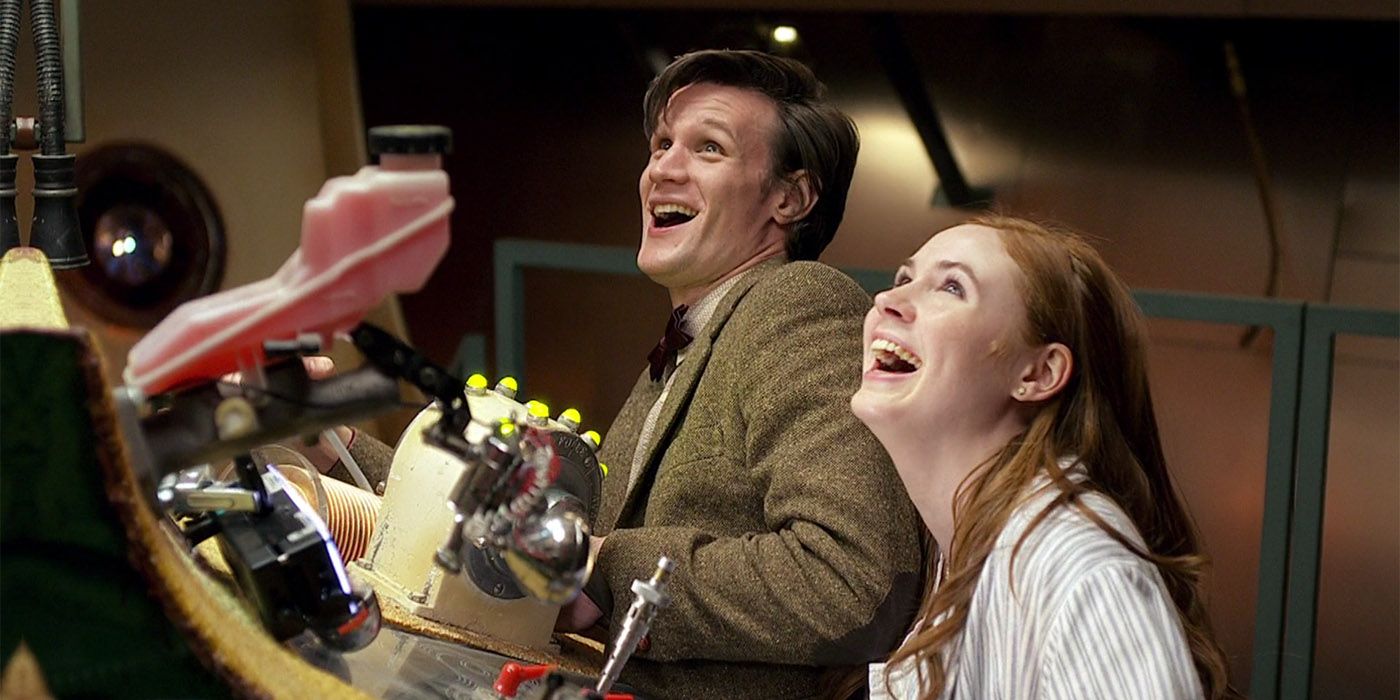Doctor Who viewers will be familiar with a different opening credits sequence, depending on whether they live in the U.K. or U.S. First airing on British TV in the 1960s, Doctor Who debuted with psychedelic, swirling opening titles that have gone on to achieve iconic status. Doctor Who's original intro was created by Bernard Lodge, who used the feedback from a TV camera pointing at a monitor to achieve that famous twirling visual. Accompanied by Ron Grainer's classic theme tune, the credits perfectly prepared viewers for the alien madness and time-traveling mischief that was to follow.
As the decades passed, Doctor Who's opening credits have been constantly updated, but always stuck with the same general formula. Even when returning after a long hiatus in 2005, Doctor Who reverted to the familiar setup of a twisting, hypnotic vortex overlaid with the names of the show's main cast, reliably ending with the title of this week's episode. The sequence has become as synonymous with Doctor Who as the Daleks and the TARDIS and there would be public outcry if the BBC instigated a shift towards a completely redesigned intro.
Unsurprisingly, then, the actual credits segment of Doctor Who's U.S. opening intro remains unchanged, however, the season 6 titles also include a short prelude before more familiar sequence began. From 2011's "The Impossible Astronaut," Doctor Who's intro sequence in the U.S. would begin with a dream-life voiceover from Karen Gillan's Amy Pond. Featuring footage from season 5, the segment acted as a crash course in the basic Doctor Who story, briefly explaining elements such as the TARDIS being bigger on the inside. Only after this would the traditional intro sequence begin. Although not included in the original BBC U.K. broadcast, the narrated intro can be found on the U.K. Netflix streams.
Strangely, the Amy Pond narration sequence remained in place even during episodes that already contained a "previously on..." catch-up montage, arguably crossing the gap from helpful reminder to irksome spoon-feeding. The U.S.-only sequence also hammers home a message that permeated throughout Steven Moffat's Doctor Who era - that the Doctor is more of a fairy tale character than an alien visitor. Amy's speech avoids using terms like "alien" and "spacecraft" and instead frames the Doctor as a mysterious folklore hero whose origins are unknown.
It's likely that the thinking behind this addition was to offer new U.S. viewers an entry point into a franchise packed full of mythology and history. In the U.K., even those who can't stand Doctor Who are aware of the show's basic premise and character, such is the Doctor's status as a cultural icon. This is not the case internationally, and with the BBC actively working to expand Doctor Who's worldwide popularity in the Matt Smith era, a brief intro before the actual opening credits feels like an effort to help new viewers feel less alienated as they jump into the Doctor's universe.
And the tactic worked too. Although the narrated intro sequence was ultimately dropped, the Matt Smith era saw Doctor Who's popularity in the U.S. skyrocket, and although factors such as improved online distribution and higher production values played a more significant role in this success, ensuring Doctor Who newbies didn't fall behind was also an important step to take.
Doctor Who season 12 premieres in 2020 on BBC One and BBC America.


